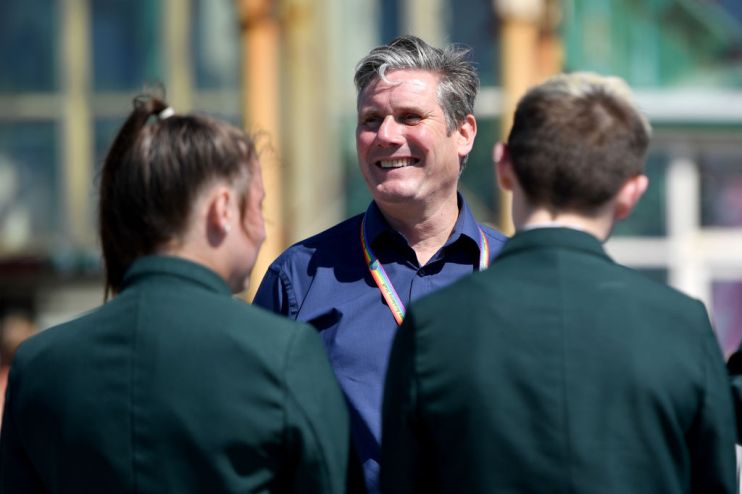Keir Starmer’s 14,000 word memo sums up the Labour party’s existential challenge

We are in the throes of the Labour Party annual conference in Brighton, the opposition’s seaside shindig where members mix with party grandees, policy is debated and the would-be government parades its show ponies for the media and the electorate. It provides an opportune platform for individual shadow ministers to catch the attention of the normally uninterested.
This year, Labour meets in the wake of its leader, Sir Keir Starmer, having set out his vision for an alternative Britain in a 14,000-word pamphlet for the Fabian Society, The Road Ahead.
It is his weightiest contribution since he became leader in 2020. Though critics have been quick to point out a long tract for a socialist think-tank and ginger group is not the best way to achieve “cut-through”.
The government is hardly in peak condition. While polls suggest the Conservatives still enjoy a decent lead in public opinion, we are emerging from a pandemic, facing a possible winter of fuel and other shortages caused by a battered logistics chain, led by a prime minister who is derided and loathed as heartily as he is fondly tolerated by others. Even a recent cabinet reshuffle hardly populated the government front bench with bright stars and there is a dearth of big hitters.
Yet the opposition continues to miss open goals. Instead they seem addicted to inward-looking procedural strife, such as Starmer’s proposals to change the way the party chooses its leader.
Last week, with the prime minister abroad in the US, deputy leader Angela Rayner faced Dominic Raab at PMQs, pulling in praise for her combative performance. But Raab is weakened and disheartened by his demotion from the Foreign Office. Rayner is not a particularly impressive figure. Her rise from school leaver without qualification to member of parliament and deputy leader of her party is something we should all respect, but she remains lightweight. If she shines, it is more a reflection of her hapless colleagues than her own strengths.
The shadow cabinet consists of 33 politicians and many of them would likely be forgotten by even the most fastidious of us. Louise Haigh? Jim McMahon? Jo Stevens? They are hardly names on the tip of anyone’s tongue. Many of them hold their jobs for the simple reason that someone has to.
Starmer has one or two household names, even if those houses are only in SW1. Ed Miliband carries weight from his leadership and the grace with which he was able to accept defeat. David Lammy is a powerful voice thanks to his profile in London and long-standing advocacy on racial issues; his second career as a presenter on LBC does not hurt. Emily Thornberry is still remembered for her metropolitan horror of the flag of St George, and Rachel Reeves is probably most memorable for being described by Ian Katz, the editor of Newsnight, as “boring, snoring” in an accidental tweet.
There was a flight of the “modernisers”. The Ed Balls and Alistair Darlings of the Labour party have all left. Only Yvette Cooper remains on the back benches as an excellent chair of the home affairs committee. Isolated figures such as Wes Streeting and Luke Pollard provide provide a flash of professionalism and grip.
There is no magic bullet for Starmer. Certainly his woolly Fabian essay needs to be condensed into a handful of punchy, memorable pledges not unlike the five promises encapsulated on a card by Tony Blair in 1997.
New blood is almost certainly needed too.